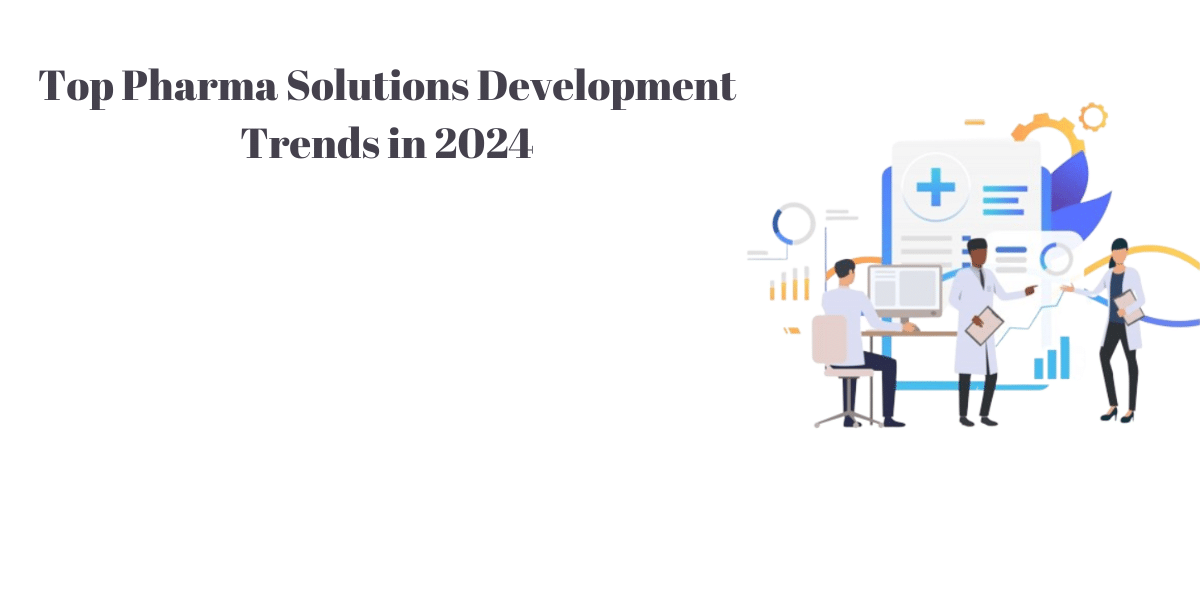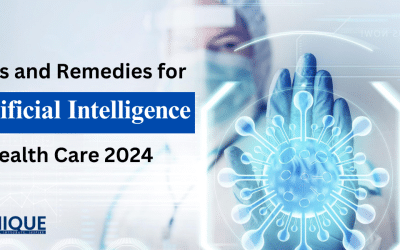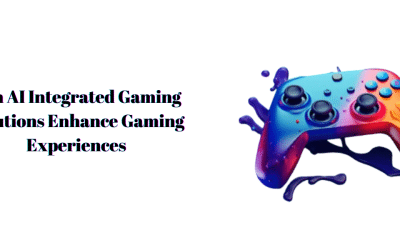The world of Pharma Solutions Development is poised to be at the forefront of technological innovation and change. The pharmaceutical industry grows rapidly due to technological advances and changing consumer needs. Specific trends are emerging that are transforming how pharmaceutical products are created, provided, and streamlined.
A significant trend gaining attention and momentum in Pharma Solutions Development for 2024 involves the integration of AI (AI) and machine learning (ML) in various stages of development, discovery, and manufacturing. AI-driven algorithms have revolutionized data analysis, allowing researchers to search vast amounts of data, find possible drug candidates, anticipate molecular structure, and improve manufacturing processes with incredible efficiency and precision.
Additionally, the advent of sophisticated analytics and big data applications is driving changes in how pharmaceutical companies conduct research and development. Using real-world data, genomic information, and patient insights, pharmaceutical companies can customize treatment plans, speed up clinical trials, and speed up the time it takes to bring new treatments to patients.
Another major factor shaping Pharma Solutions Development in 2024 is the increased emphasis placed on precise medicine and targeted treatments. Thanks to advances in genomics, biomarker recognition, and proteomics, pharmaceutical companies are innovating novel approaches to disease management that can tailor treatments according to a patient’s genetic profile, lifestyle, and specific disease characteristics.
Additionally, digital health technology, such as telemedicine platforms, wearable devices, and remote patient monitoring systems, is changing how health services are provided and accessible worldwide. These tools not only increase patients’ engagement and compliance but also enable real-time data collection, allowing health professionals to make more well-informed treatment decisions and improve patient results.
Exploring Custom AI Pharma Solutions: Top Trends in 2024
The innovative products leverage the power of artificial intelligence (AI) to transform research, development, manufacturing, and even the treatment of patients. We will look at the most critical developments in Custom AI Pharma Solutions in 2024.
Artificial Intelligence-driven Drug Discovery
Custom AI Pharma Solutions have revolutionized the process of discovering drugs by speeding up the process of identifying possible candidate drugs. With advanced algorithms and machine-learning models, these products analyze massive data sets to determine the effectiveness and safety of substances. In the process of simulating molecular interactions and also predicting biological activities, AI assists in the discovery of potential drug candidates and reduces expensive trial-and-error methods.
Precision Medicine and Personalized Treatments
Precision Medicine aims to adjust medical care according to the unique characteristics of every patient, including their genes and lifestyle. Custom AI Pharma Solutions are integral to this change by analyzing patient data to find the best treatment strategy. Through AI algorithms, pharmaceutical companies can develop individualized treatments that focus on particular patient groups, enhancing treatments and lessening negative consequences.
Predictive Analytics to Support Clinical Trials
Clinical trials are an important part of drug development; however, they can be lengthy, expensive, and vulnerable to failure. The custom AI Pharma Solutions offer predictive analytics that can optimize the design of clinical trials, patient enrollment, and protocol optimization. Based on the analysis of historical data and live patient information in real-time, AI algorithms predict patient reactions to treatment, which allows pharmaceutical companies to develop the most efficient and effective clinical trials.
Enhanced delivery and formulation of drugs
The formulation and the delivery system of pharmaceuticals is a crucial factor influencing effectiveness, safety, and patient compliance. The custom AI Pharma Solutions utilize predictive computation and modeling to enhance drug formulations and delivery mechanisms. Through analyzing aspects such as stability, solubility, and bioavailability, AI algorithms help pharmaceutical companies create new drug formulations and delivery techniques that boost the therapeutic effects.
Drug repurposing and Combination therapies
The process of repurposing drugs involves finding new therapeutic uses for existing medications, providing the most cost-effective way to develop new medicines. The custom AI Pharma Solutions leverage big data analytics and machine learning algorithms to discover possibilities for drug repurposing through the analysis of drug properties such as molecular pathways, drug properties, and disease mechanisms. Furthermore, AI facilitates the identification of drug combinations that synergize and offer novel treatments for patients with complex conditions and improve patient results.
Regulatory Compliance and Drug Safety
Regulatory compliance and drug safety are the most critical issues in the pharmaceutical industry. The custom AI Pharma Solutions enable pharmaceutical businesses to navigate complicated regulatory terrains and ensure that they comply with the strictest safety standards. AI-powered algorithms analyze pharmacovigilance reports, adverse event information, and guidelines for regulatory compliance to pinpoint potential safety risks and minimize dangers throughout the drug creation life cycle.
Health Solutions for Patients
In a new era of patient-centric healthcare, Custom AI Pharma Solutions prioritizes individual patient preferences and needs throughout the development of drugs. By analyzing health information generated by patients, such as electronic health documents, wearable devices, and social media interaction, AI algorithms generate insights into patient behavior, treatment compliance, and therapeutic results. The patient-centered approach aids in the creation of customized medical solutions to empower patients to improve their overall well-being.
Exploring the Vital Steps for Pharma Solutions Development
The intricate processes comprise Pharma Solutions Development, elucidating the key steps driving the pharmaceutical intervention’s development and improvement.
Identification of medical needs
At the heart of Pharma Solutions Development lies the recognition of medical requirements that are not met. Clinicians and researchers study health landscapes, epidemiological information, and patient demographics to identify areas in which treatments are not sufficient or inadequate. This involves extensive market analysis and interaction with health professionals to determine the need for innovative therapeutic solutions.
Research and Preclinical Studies
In the wake of the identification of medical needs, researchers begin extensive studies in the preclinical area to identify possible therapeutic targets and potential drug candidates. Experiments in vitro, animal models, as well as computational analysis can be used to evaluate the efficacy, safety as well as pharmacokinetic profile of the molecules being studied. This is essential for choosing leading compounds and forming the basis for future clinical development strategies.
Clinical Trial Creation and the Beginning
Transition from preclinical research into clinical investigations marks an essential junction for Pharma Solutions Development. The design of clinical trials requires careful preparation, including factors like the trial’s endpoints, the selection of patients, and regulatory regulations. Researchers work with institutions, regulatory agencies, review boards, and clinical research institutions to develop rigorous protocols that comply with ethics standards and guidelines for regulatory compliance.
Clinical development phases
The development of clinical trials takes place in distinct phases, defined by specific goals and endpoints
- Phase 1:The focus is on evaluating drugs’ safety, tolerability, and pharmacokinetics of healthy subjects.
- Phase 2:expands the enrollment of patients to evaluate the efficacy of this trial and the dose-response relationship in selected patients.
- Phase 3:conducts large-scale randomized controlled studies to verify the drug’s efficacy, track adverse events, and assist in submitting regulatory applications.
- Phase 4:Studies on post-marketing surveillance for monitoring long-term safety and efficiency in the real world.
Regulation Submission and Approval
Submitting a regulatory application is the most critical step within Pharma Solutions Development, requiring complete documentation of the clinical data, manufacturing procedures, and Pharmacovigilance programs. The regulatory agencies, like the FDA and EMA, thoroughly review the documents submitted to determine the benefits-risk profile of pharmaceuticals. The regulatory agency’s approval grants the market authorization, allowing the commercialization of pharmaceutical products accessible to patients.
Commercialization and market access
The moment you receive approval from the regulator signals the start of commercialization and market access initiatives. Pharmaceutical companies develop elaborate launch strategies, including pricing strategies, market segmentation, distribution channels, and marketing activities. Collaboration with healthcare payers, suppliers, and advocacy organizations facilitates access to pharmaceutical solutions and improves outreach to patients and participation.
Post-Market Monitoring and Pharmacovigilance
Even after a market’s launch, all pharmaceutical products are subject to a constant post-market surveillance program to ensure safety, efficacy, and real-world usage patterns. The systems for pharmacovigilance record adverse events, drug mistakes, and complaints about products and help in the timely implementation of risk reduction methods and reporting requirements to regulators. Monitoring pharmacovigilance continuously ensures products’ security and safety throughout their lives.
Innovative Lifecycle Management
The lifespan of products for pharmaceutical use extends far beyond the the initial launch and requires constant innovation and adapting to the changing landscape of healthcare. Management strategies for lifecycle management include portfolio optimization, protection of patents, improvement of formulations, and therapeutic extension. Continued investments in research and development encourage the development of new formulas, indications, and treatments, which helps maintain the effectiveness and efficiency of portfolios of pharmaceutical products.
Conclusion
The world of medicine will continue to see revolutionary trends influenced by innovations and technological advancements, as well as changing medical demands. The emergence of tailor-made AI pharmaceutical solution businesses stands out as one of the major trends changing the development of drugs and healthcare. These businesses use the potential of artificial intelligence to speed up the discovery of drugs, improve clinical trials, and tailor treatments.
The convergence of AI, Big Data Analytics, and precision medicine will alter the pharmaceutical industry as we know it today. Custom AI Pharma Solutions companies are leading the way, using modern algorithms to analyze huge databases, identify drug effects, and discover new therapeutic targets with unimaginable efficiency and precision.
Furthermore, they allow the pharmaceutical industry to adjust rapidly to the changing regulatory landscape, streamline manufacturing processes, and improve drug safety profiles. With the help of customized AI technologies, pharmaceutical companies can reduce risk, lower expenses, and speed up time to market for life-saving drugs.











